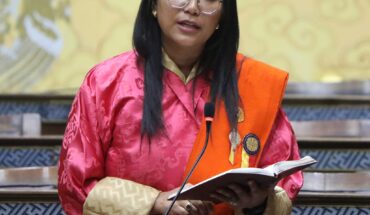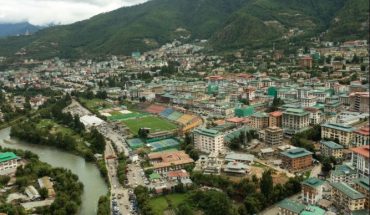
NGAWANG JAMPHEL
Thimphu
The Community-led Advocacy Network Summit (CLAN Summit) 2025, organized by Chithuen Phendhey Association in collaboration with Save the Children Bhutan, marked a historic milestone in the fight against drug abuse and mental health challenges in Bhutan.
Held over two days in Phuentsholing, the summit brought together twenty-five individuals with lived experiences of substance use disorder (SUD) from seven districts. The group shared personal stories, discussed the challenges posed by current drug policies, and proposed solutions aimed at systemic reform.
Participants united under the newly formed advocacy group, Recovery Allies for Bhutan (RAB Bhutan), with a commitment to push for government intervention and collaborative efforts to create a drug-free community.
The summit underscored the escalating drug crisis in Bhutan, drawing attention to the ineffectiveness of punitive measures in addressing the root causes of drug abuse. Participants expressed deep concern over the alarming rise in drug-related crimes, with the Office of the Attorney General (OAG) reporting a 214% increase in drug cases compared to the previous year.
Since 2018, over 10,000 individuals have been arrested for drug-related offenses, highlighting the prevalence of substance abuse in the country. The participants stressed that strict drug laws, including harsh penalties and mandatory treatment programs, have created fear and stigma among those affected.
It was noted that rather than encouraging recovery, these measures have exacerbated mental health issues and fostered distrust within communities.
A particularly troubling development discussed at the summit was the shift toward the use of harder drugs like heroin, commonly known as “brown sugar.” A recent heroin bust at Paro Airport and reports from major towns such as Thimphu and Phuentsholing indicate that Bhutan is increasingly being targeted by international drug networks.
Representatives from these regions warned of the risks of a heroin epidemic, citing the lack of effective demand reduction strategies and insufficient awareness campaigns about the dangers of such substances. Participants called for proactive measures, including training health workers on overdose prevention, ensuring the availability of Naloxone, and decentralizing rehabilitation services.
Another major concern was the inadequacy and centralization of existing treatment and support services. While Bhutan has rehabilitation centers, outpatient programs, and counseling services, these resources are primarily located in Thimphu, making them inaccessible to individuals from remote districts. The lack of aftercare and reintegration programs further compounds the problem, leading to high relapse rates.
A representative from Thimphu highlighted the service gaps, stating, “There are no services like aftercare and social reintegration, which are crucial for long-term recovery.” The participants emphasized the need to decentralize services, increase accessibility, and establish user-friendly processes and policies to support individuals in recovery.
The summit also identified critical policy and systemic gaps in Bhutan’s approach to addressing drug abuse. Participants called for a shift from punitive measures to a more compassionate, evidence-based response that prioritizes treatment, rehabilitation, and community support.
They argued for a holistic approach that tackles the social, economic, and psychological factors contributing to substance abuse, such as unemployment, lack of education, and mental health challenges.
Pema Dorji, a representative from Gelephu, articulated this sentiment, saying, “We need support, not punishment. Strict laws are only making us more afraid and isolated.”
The summit concluded with a call to action, urging the government and stakeholders to adopt a health-centered approach to drug policy and prioritize systemic reforms.
Participants also proposed immediate steps to address the crisis, including revising existing policies, expanding treatment and support services, involving affected communities in decision-making, and addressing the root causes of substance abuse.
By adopting a compassionate and collaborative approach, the Recovery Allies for Bhutan and summit participants believe that Bhutan can create an inclusive and drug-free society.
Through their collective voice, the participants of the CLAN Summit 2025 have set the stage for meaningful change.





